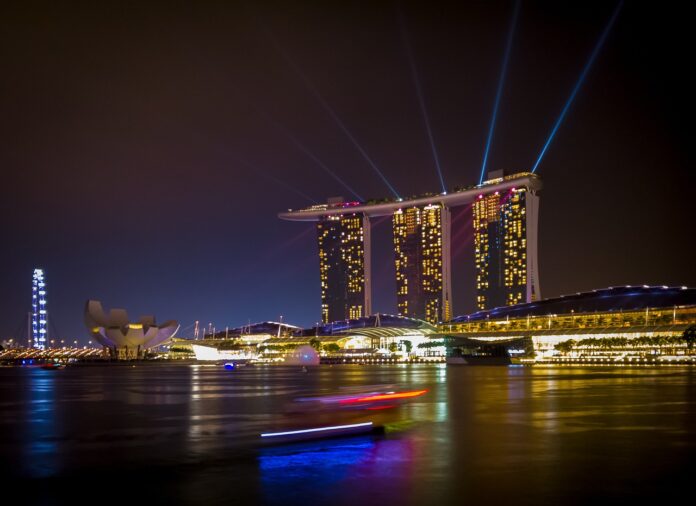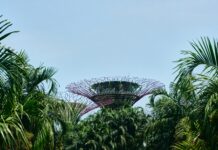Singapore’s real estate market has seen remarkable growth over the years, largely due to strategic government policies that have created a stable and attractive environment for both local and international investors. These policies have been instrumental in shaping the market, ensuring sustainable development, and providing opportunities for citizens to own property.
Land Use and Urban Planning
One of the fundamental aspects of Singapore’s real estate growth is the government’s meticulous approach to land use and urban planning. The Urban Redevelopment Authority (URA) plays a crucial role in this process, developing long-term plans that balance residential, commercial, and industrial needs. This ensures that land is used efficiently and effectively, contributing to the overall growth and development of the city-state.
The government’s commitment to providing ample housing is evident in the numerous public housing projects managed by the Housing and Development Board (HDB). These projects offer affordable and quality housing options to a large segment of the population, ensuring that homeownership remains within reach for many Singaporeans.
Cooling Measures and Market Stability
To maintain a stable and sustainable real estate market, the Singapore government has implemented various cooling measures over the years. These measures include the Additional Buyer’s Stamp Duty (ABSD), Seller’s Stamp Duty (SSD), and Loan-to-Value (LTV) limits. By regulating property transactions and financing, these policies help prevent speculative bubbles and ensure that property prices remain within reasonable limits.
For instance, the ABSD imposes additional taxes on property purchases by foreigners and those buying multiple properties. This helps to curb excessive speculation and promotes a more balanced market. The SSD discourages short-term trading by imposing duties on properties sold within a certain period after purchase, further stabilizing the market.
Encouraging Foreign Investment
While cooling measures are in place to ensure stability, the government also recognizes the importance of foreign investment in the real estate sector. Policies such as the Economic Expansion Incentives Act and the Global Investor Programme have been designed to attract foreign investors, encouraging them to invest in Singapore’s property market.
These initiatives provide various incentives, including tax breaks and residency privileges, making Singapore an attractive destination for international investors. This influx of foreign investment has contributed significantly to the growth and dynamism of the real estate market, driving demand for high-end residential and commercial properties.
Infrastructure Development
Infrastructure development is another key area where government policies have played a pivotal role. The expansion of public transport networks, such as the Mass Rapid Transit (MRT) system, has made various parts of Singapore more accessible and desirable for property investment. Improved connectivity and accessibility enhance the value of properties, making them more attractive to buyers and investors.
Additionally, initiatives like the Smart Nation project aim to integrate advanced technology into urban living, creating smart homes and smart cities. These advancements not only improve the quality of life for residents but also increase the appeal of Singapore’s real estate market.
The Role of New Launch Portal
In this dynamic environment, platforms like the NewLaunchPortal play a vital role in connecting potential buyers with the latest property developments. The New Launch Portal provides comprehensive information on new condominium projects across Singapore, helping buyers make informed decisions. By offering detailed listings, virtual tours, and expert reviews, the portal makes it easier for buyers to navigate the market and find properties that meet their needs and preferences.
Community and Quality of Life
The government’s emphasis on building vibrant and inclusive communities has also contributed to the growth of the real estate market. Policies aimed at creating green spaces, recreational facilities, and community centers enhance the quality of life for residents, making neighborhoods more attractive places to live.
Programs like the Community In Bloom initiative encourage residents to participate in the greening of their neighborhoods, fostering a sense of community and belonging. These efforts not only improve the living environment but also boost property values, as areas with high quality of life are in greater demand.
Future Prospects
Looking ahead, the future of Singapore’s real estate market remains promising, thanks to the continued efforts of the government to foster growth and stability. With ongoing infrastructure projects, innovative urban planning, and a commitment to sustainability, the market is well-positioned to attract both local and international buyers.
In conclusion, government policies have played a critical role in shaping Singapore’s real estate market, ensuring its growth and stability. From urban planning and cooling measures to infrastructure development and community building, these policies have created a thriving environment for property investment. Platforms like the New Launch Portal further enhance this ecosystem by connecting buyers with new opportunities, ensuring that the market remains dynamic and accessible for all.





















